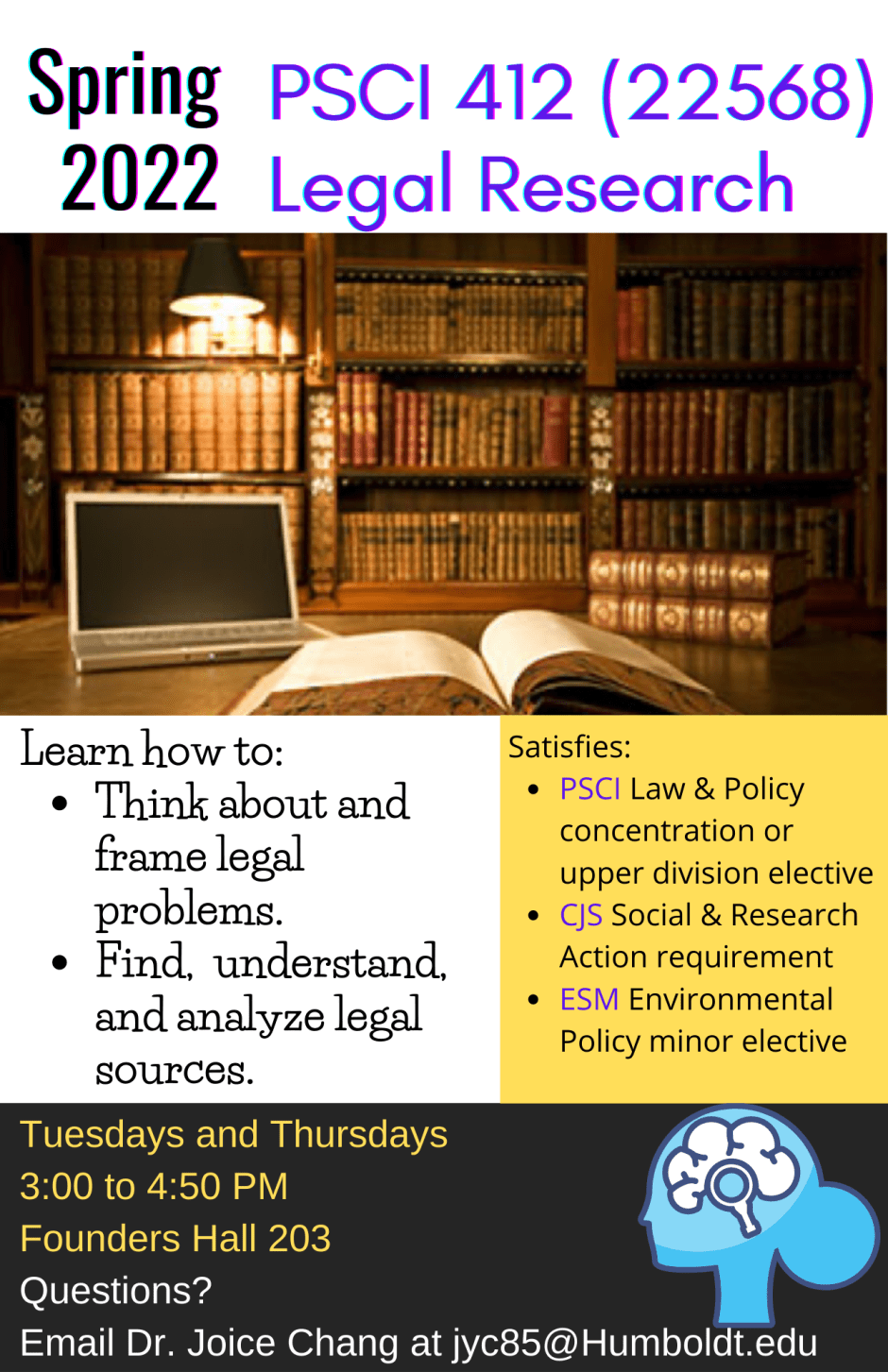Breadcrumb
News for Politics students -- 12-14-2021
December 14, 2021
Image

- Free lecture “Burning From the Bottom Up: Restoring California’s Fire Connection,” Dec. 15. As part of the Sequoia Park Zoo Conservation Lecture Series, Humboldt Environment & Community M.A. alumna Lenya Quinn-Davidson, of the University of California Cooperative Extension, will discuss “Burning From the Bottom Up: Restoring California’s Fire Connection.” California, like much of the West, suffers simultaneously from too much fire and not enough. While wildfires are taking a toll on communities and landscapes, so too is the continued exclusion of fire as a natural process in California’s fire-adapted ecosystems and habitats. Prescribed fire, or the beneficial use of fire as a tool, has been used by Californians for millennia to improve habitat and cultural resources—first by indigenous communities, and later, by ranchers and other land managers. However, we know that we need to radically increase our use of prescribed fire if we are going to get ahead of our fire problems. In this presentation, Lenya Quinn-Davidson will discuss recent efforts to scale up prescribed fire, highlighting policy, capacity building, and other aspects of California’s prescribed fire movement. Zoo updates and information will begin at 6:45 PM with the lecture starting at 7:00 PM promptly. Attendees can ask questions to the speaker at the end of the presentation via the chat box on Zoom. Zoom link here; meeting ID 862 2562 1519; passcode 582545.
- Climate Programs Internship. Applications accepted until Dec. 31. Second Nature offers resources, relationships, credibility and knowledge to accelerate climate action in, and leverage the strength of, colleges and universities. We are seeking applicants for a Climate Programs Internship that may focus on the following tasks, based on the applicant’s area of interest: analyze data on signatory participation and impact; support creating and writing resources on sustainability topics for Program Team members; database management and data entry; and other tasks as assigned. This entry level position will be remote, with a flexible work schedule, with approximately a 15-20 hour a week commitment, with direct supervision from Second Nature staff. This is a paid internship, $15/hr, and can also be completed for course credit. A background/interest in business administration, communications, marketing, global studies, sociology, public policy, environmental science, sustainability, resilience, and/or climate change is helpful, but not required. Find more details and an application link here.
- San Diego State University MA Program in Political Science. The two-year program is designed to meet the needs of students with diverse backgrounds and future plans, from those who go on to do work in advocacy, international organizations, nonprofits, government, policy analysis, or teaching to those bound for PhDs and academic careers. The degree is comprised of eleven courses providing students a strong foundation in global politics, comparative and regional politics, theory, and research design. Students with specialized interests can simultaneously earn an Advanced Certificate in Comparative and Global Politics, or an interdisciplinary Advanced Certificate in Public Policy. Scholarships are available for the first year of study. The priority deadline is February 15; the final deadline is March 1. See here for more details and application links.
- Reminder: $500 Politics Department Scholarship. Applications due January 31. Submit a personal statement, either as a one-page document or a 3-5-minute video, discussing how pursuing your degree in Politics has shaped you and what you hope to do with this degree in the future. Email politics@humboldt.edu for details.
- Environmental Justice Video Challenge for Students. The U.S. Environmental Protection Agency and its partners have launched the Environmental Justice Video Challenge for Students, which aims to enhance communities’ capacity to address environmental and public health inequities. The goals of the challenge are to: Inspire students at colleges and universities to work directly with communities in the identification and characterization of environmental justice challenges, and to help communities address environmental justice challenges and/or vulnerabilities to environmental and public health hazards. Submissions are due April 1, 2022.





